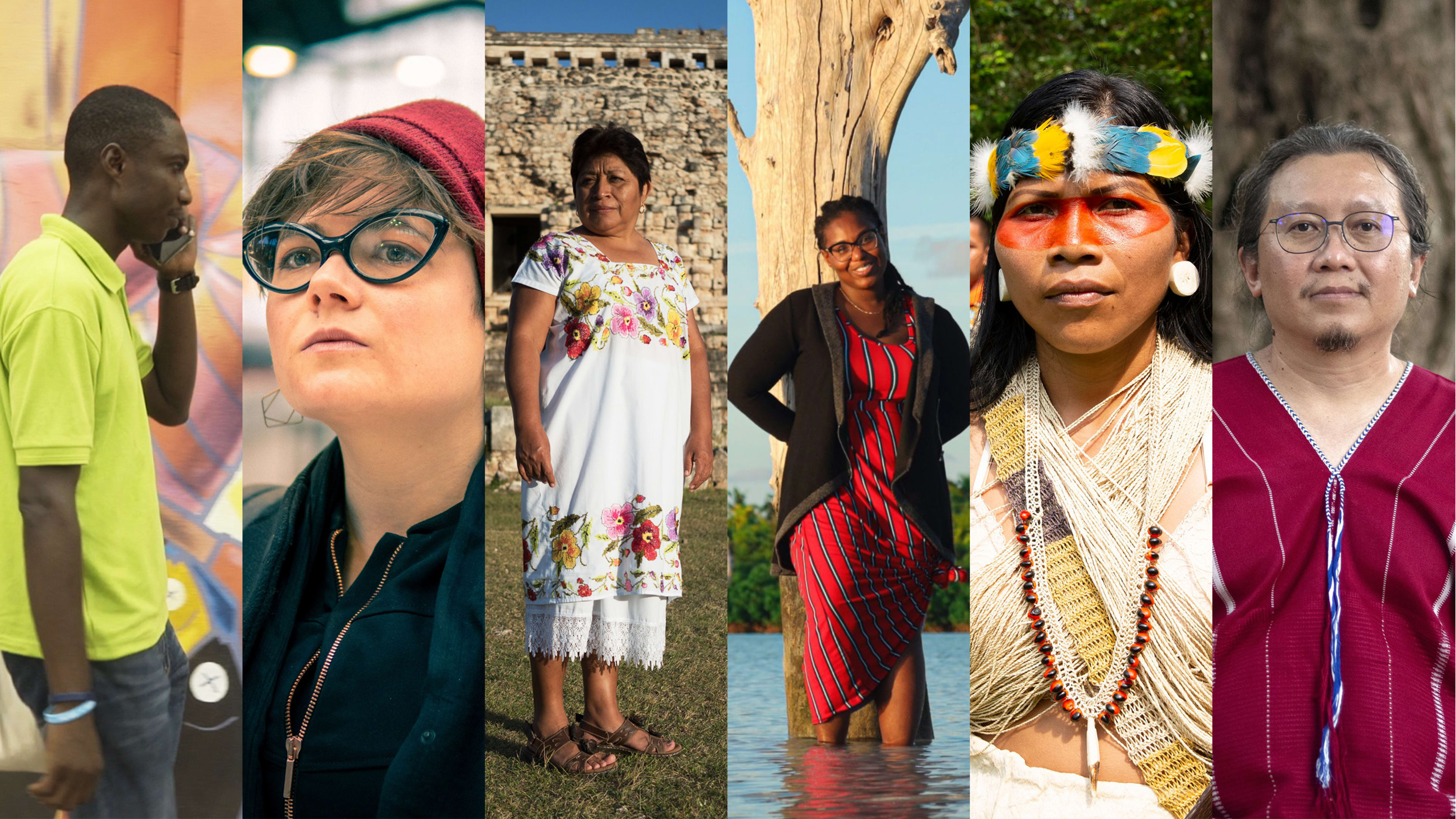Lucie Pinson started her career as an environmental activist in South Africa, where almost 90% of the energy comes from coal-fired power stations. Originally from France, she worked on the ground with the NGO Friends of the Earth, fighting against new coal projects being built in South Africa. But those coal projects were happening because of financing from major banks around the world, including from French financial institutions. Between 2005 and 2014, French banks including BNP Paribas and Credit Agricole supported the coal industry with more than 30 billion euros, making France the fourth biggest funder of coal at that time.
So Pinson focused her attention on the banks in France, pressuring them to divest from coal projects. That work has made her a winner of the 2020 Goldman Environmental Prize, an annual award that recognizes grassroots environmental activists from each of the world’s six geographic regions: Africa, Asia, Europe, Islands and Island Nations, North America, and South and Central America.

“It’s how you bring the reality of the impacts inside the banks,” she says. “It’s almost like an eruption in their world.” She would show what the impact of those coal projects had on the residents, and invite people from different countries fighting coal projects to talk about their lived experiences. People who live near coal plants have a higher risk of respiratory disease, lung cancer, cardiovascular disease, and other health impacts. Coal plants and mines take away land from communities, threaten their food sources, limit their access to water, and pollute the air. Coal-related air pollution alone leads to more than 800,000 premature deaths a year. “When the bank is speaking about profitability, this speaker can speak about his mom or his kid having asthma,” she says.
It didn’t always go right inside those meetings. Pinson was threatened verbally and insulted “many times, and sometimes very, very violently.” But she doesn’t blame the shareholders. “I think it’s really about being stricken, and they are stricken because they don’t understand climate change,” she says. “I’m bringing to them a reality they ignore.” Pinson kept the pressure on the decision makers, writing letters to bank executives laying out climate expectations for the next year and publicly ranking the banks based on their coal policies and projects.
And the banks and insurers felt that pressure. In 2017, SCOR, the world’s fourth largest reinsurance company, announced it would not insure new coal plants and would stop investing in companies if 30% or more of their revenue came from coal. AXA, the third largest insurance company, said it would divest about $3.5 billion that had been designated to coal power stations, mines, and tar sands. In 2019, Credit Agricole said it would phase out coal from its portfolio, and as of January 2020, BNP Paribas’s investment arm will no longer invest in companies that make more than 10% of their revenue from coal. More than 40 banks and insurers have stopped directly supporting new coal projects, but some still finance companies who then finance coal, and Pinson also publicizes that hypocrisy.
There’s still a lot of work to be done to stop the use and financing of coal—which Pinson is continuing via Reclaim Finance, which she founded in 2020—but still, these changes give her hope. “The finance industry is set to think about the short term. It’s set to think about profitability, and that’s it,” she says. “When a financial institution is excluding hundreds of companies not because they are risky for them at this current time but because they are the biggest threat for our climate, it means this financial institution is now thinking about impact, not risk. It’s thinking about long term and not short term.”





For all the Goldman Prize winners, their environmental work is far from over. But to them, the prize is recognition that they did achieve some change, that even more change is possible, and that we can be hopeful about our climate future. “We can win this war,” Pinson says. Some people may feel defeated in the face of climate catastrophe, or worried that change isn’t happening fast enough. And it might not be happening quick enough, she notes, “but maybe that’s because most people think that they can’t make a difference, and we need to quit with this culture of defeat,” she says. “As a prize winner I’m here to say we can make a difference, and we can achieve change.”
Recognize your brand’s excellence by applying to this year’s Brands That Matter Awards before the final deadline, June 7.
Sign up for Brands That Matter notifications here.
